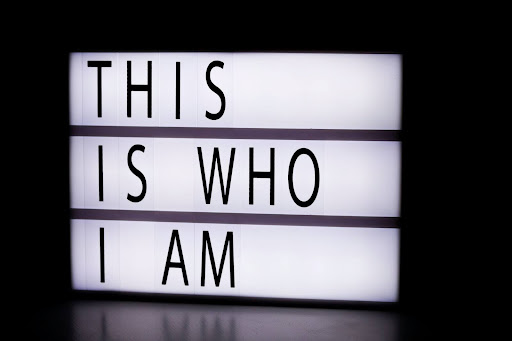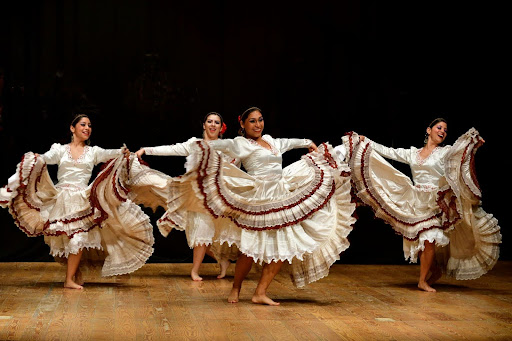By Kim Saviñon
When my parents first immigrated to the United States from La Vega, Dominican Republic, they encountered pressure to conform to American culture, resulting in a change in our legal family name from 'Saviñon' to 'Savinon'. The American legal system did not allow diacritics such as tildes or accent marks over characters in legal names. Despite this, my Dominican heritage has always been an integral part of our identity.

My Dominican Roots in Providence
I grew up in a low-income household located in Providence, Rhode Island, where we only spoke Spanish at home. This vibrant city, with nearly half of its population identifying as Latinx, is rich in culture and hosts annual festivals for most Latin American countries. I participated in the Dominican festival of Rhode Island for many years as both a choreographer and a Latin dancer—dance was my way of staying connected to my Latin roots.
I was in ESL classes until fifth grade, and although I didn’t speak English at first, mathematics became the universal language that allowed me to communicate with my teachers. As I became fluent in English, I strengthened both my language and math skills by tutoring my peers—deep down, I always knew I wanted to be a math educator.
From Diversity to Isolation
Even as a first-generation college student, my desire to pursue graduate school came as early as my freshman year in college, as I fell in love with the academic atmosphere of my undergraduate campus at Rhode Island College. Given its location in Providence, my alma mater serves a significant number of Latinx students and other underrepresented groups. However, this diversity is not reflected in its faculty, as you might find on most campuses across the country. Growing up in this multiculturally rich bubble, math and my Latin heritage coexisted beautifully. I didn’t recognize or feel the lack of representation in the field of mathematics until I began the PhD program at the University of Connecticut, where I am the only Hispanic graduate student in my department.
The low representation of Latinx individuals in mathematics can be attributed to systemic barriers, lack of role models, and limited access to resources and opportunities. I gained firsthand experience of the richness that diverse perspectives offer, along with the challenges that emerge when those perspectives are not equally valued. When I transitioned from the diverse urban environment of my undergrad to a rural area where Hispanic women were rarely seen, that was when the culture shock hit.
I found myself speaking less and less Spanish. I accepted the misspelling and mispronunciation of my last name in an attempt to ‘fit in’. I danced and listened to Latin music less frequently. I found it difficult to find spaces where my Latin identity and mathematics could coexist again. Without realizing it, I was silencing my Latin heritage in exchange for a sense of belonging. Just like my parents, I felt the pressure to conform to this new mathematical culture. While it’s not something I’m proud of, I share this with you to emphasize that diversity isn’t just about representation—it’s about fostering spaces where all voices are heard and where every individual has the opportunity to thrive.

Reembracing My Latinx Identity in Mathematics
Everything changed for me when I attended the LatMath conference at IPAM. The main goal of this conference is to encourage Latinx to pursue careers in the mathematical sciences, to showcase research being conducted by Latinx at the forefront of their fields, and, finally, to build a community around shared academic interests. My favorite part of this conference is the closing banquet, where I get to dance to Latin music alongside other Latin mathematicians. For the first time in a long time, my heritage and mathematics were embraced and celebrated as one. Participating in this conference not only gave me a profound sense of belonging but also made me realize just how much I had been muting my Latin voice.
I learned to embrace being the only Hispanic woman in the room, seeing it not as a challenge, but as an opportunity to inspire change and to build a community where my heritage and mathematics can live harmoniously. After all, we must pave the path for the next Latinx generation. I learned to take a powerful stance in not settling for an American version of my name. Rather than conforming to external pressures, I began the process of adding the ‘ñ’ back to my name and reaffirming to myself that I belong.
Final Thoughts: Advice on How You Can Support Underrepresented Groups
- Mathematics thrives when diverse voices and perspectives contribute to its development. If you’ve benefited from mentorship, support, or opportunities in your journey, consider paying that forward—especially to those from underrepresented groups.
- Representation matters. When you uplift others, you help create a more inclusive and equitable mathematical community. Whether it’s mentoring a student, advocating for equitable policies, or simply sharing your experiences, your efforts can make a profound impact.
- Remember, the encouragement you offer today could be the turning point for someone’s mathematical journey. Be the mentor, the ally, and the advocate you wish you had—or the one you were lucky enough to receive.
For me, nothing is more fulfilling than contributing to something greater than yourself. Connecting with the broader community and making a meaningful impact is incredibly rewarding, for I believe that we all have a deep responsibility to give back.

Kim Saviñon is a Dominican-American, first-gen, sixth-year PhD candidate studying Applied Mathematics at the University of Connecticut. In her spare time, she enjoys kickboxing, baking, and spending time with her Pomeranian.
You can also follow Kim on:
Instagram: @kimberlysavinon
Facebook: Kimberly Savinon
